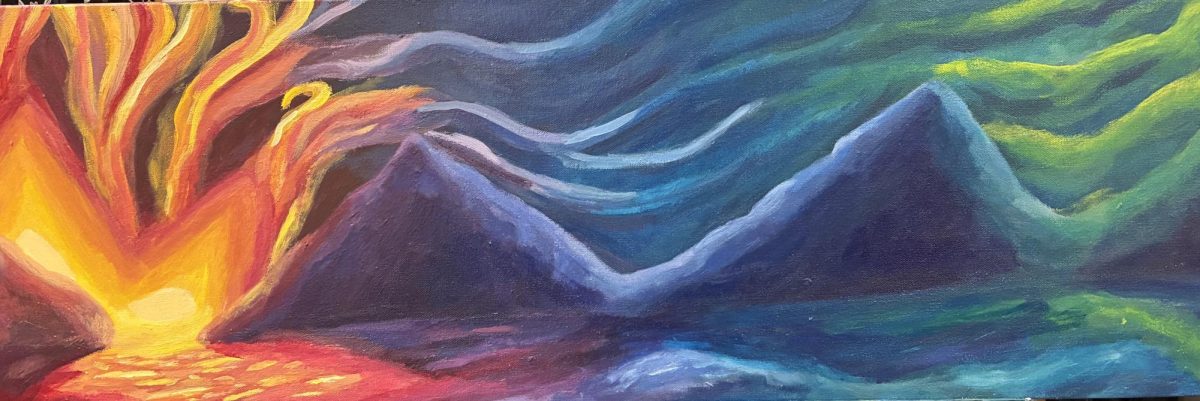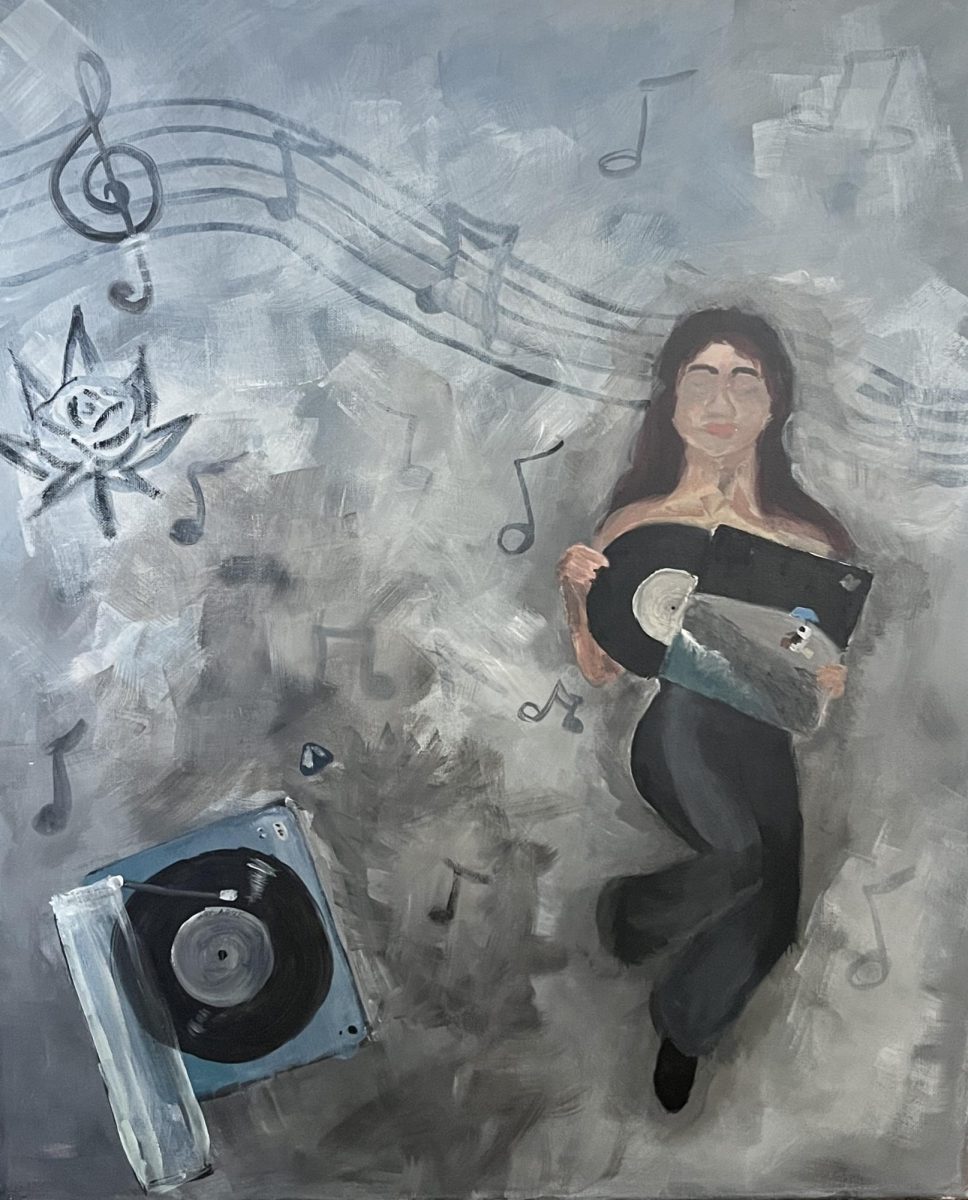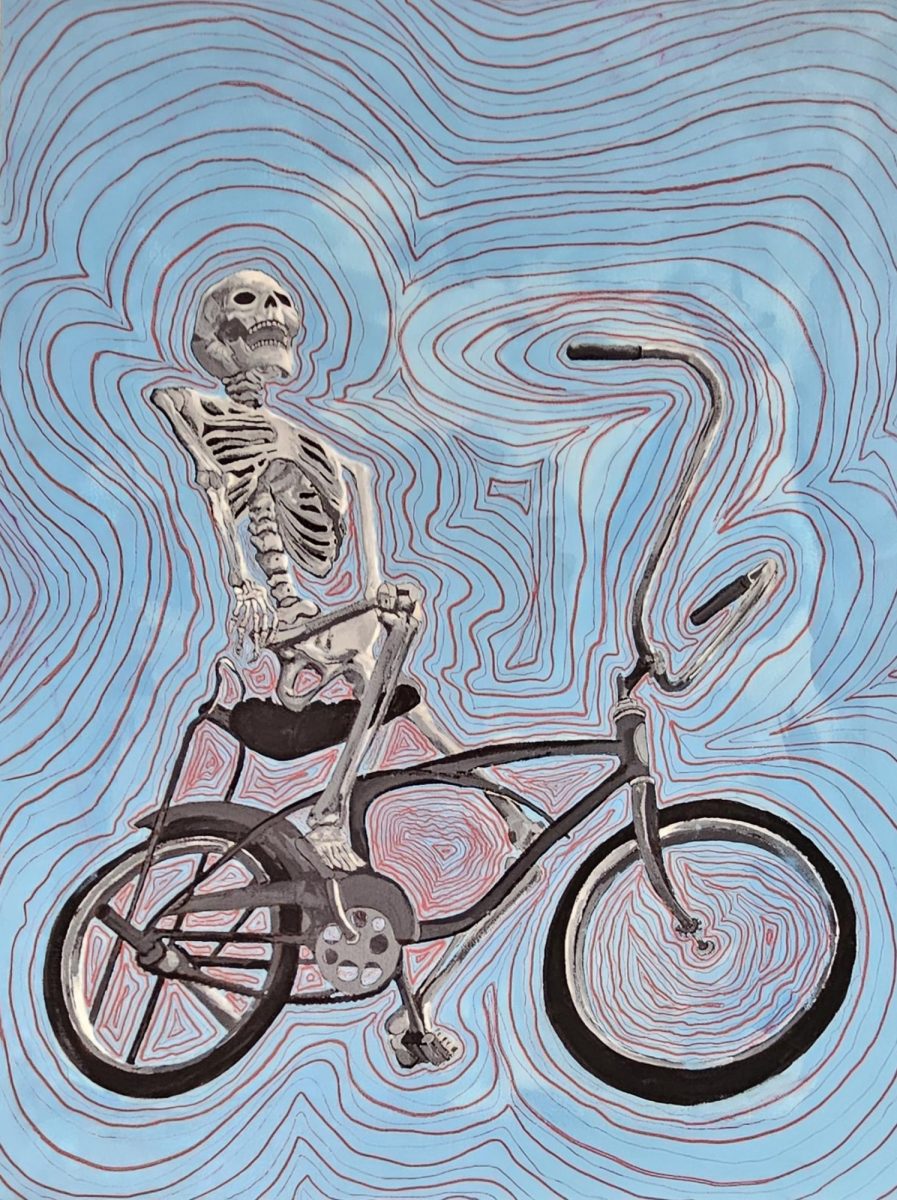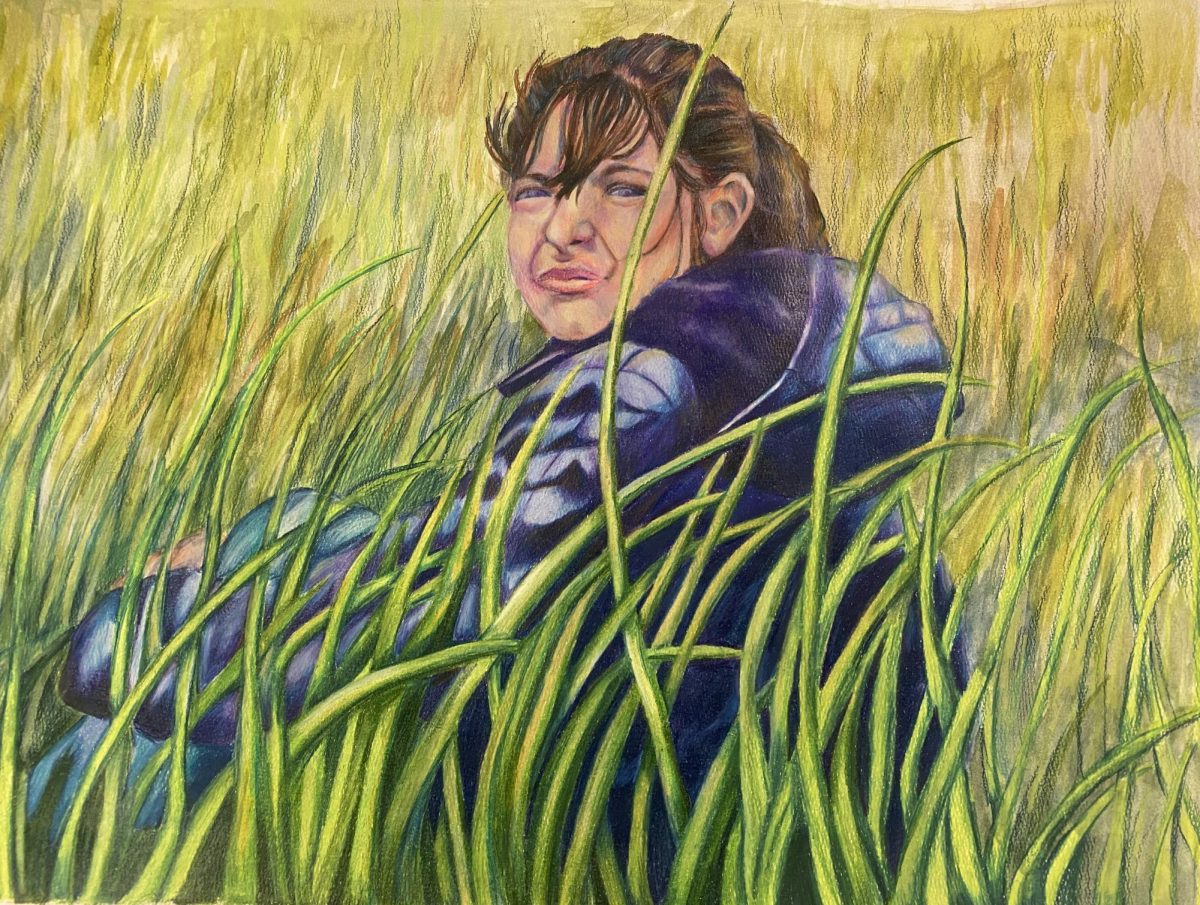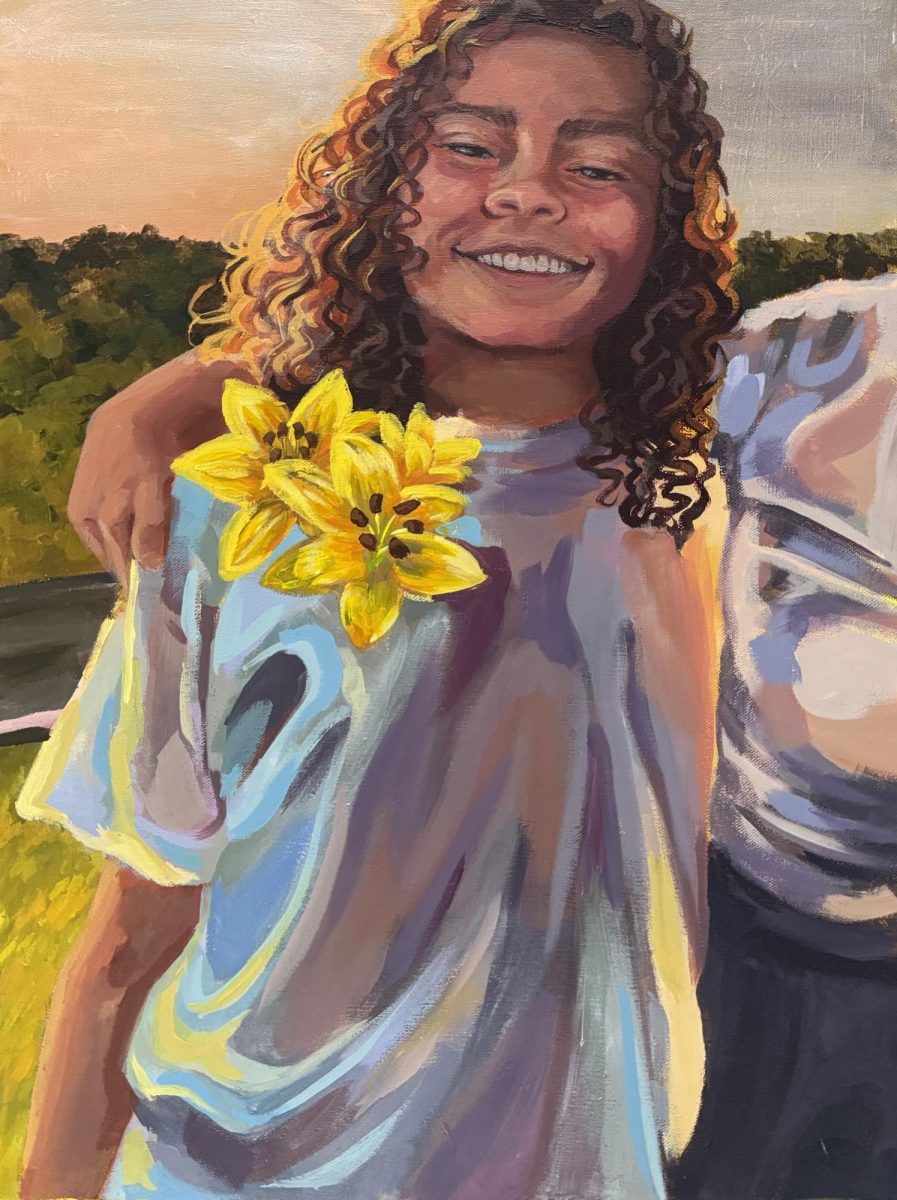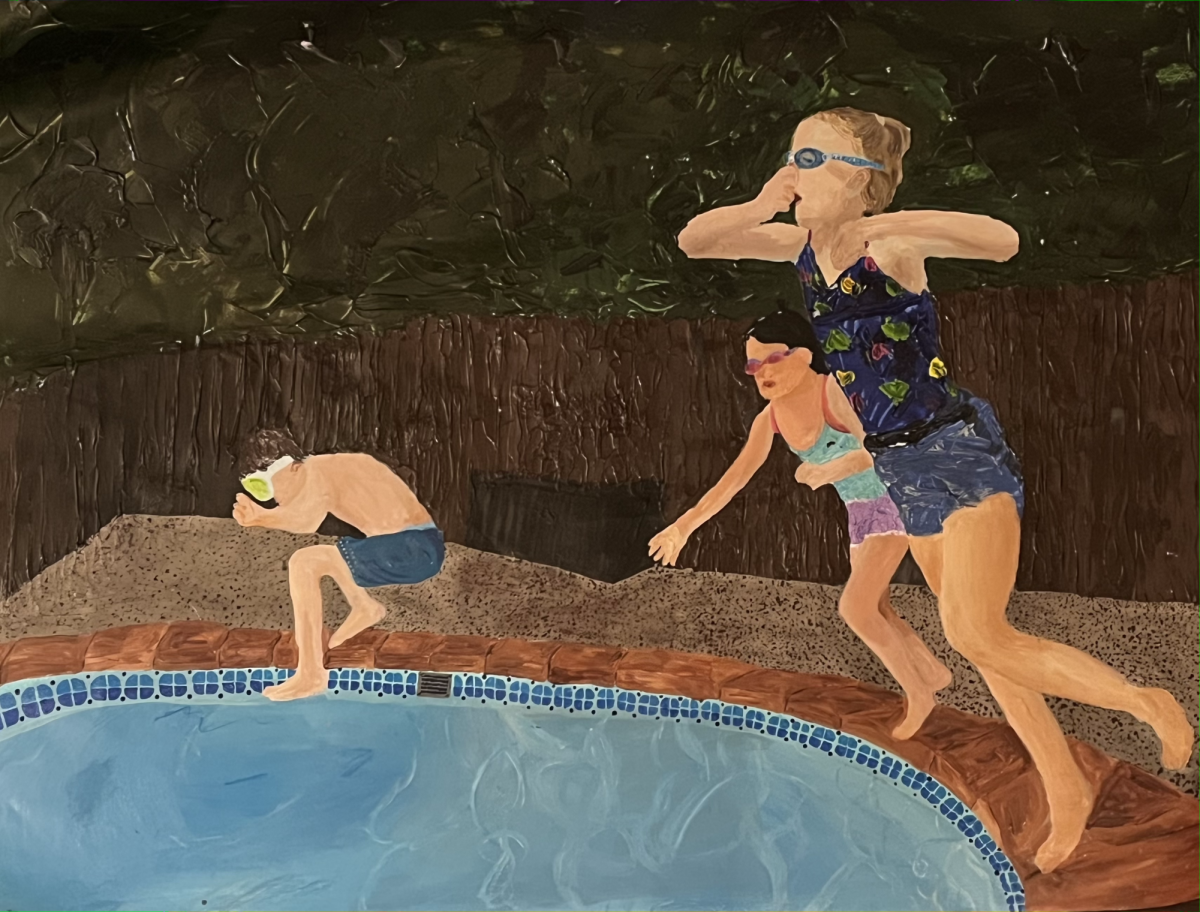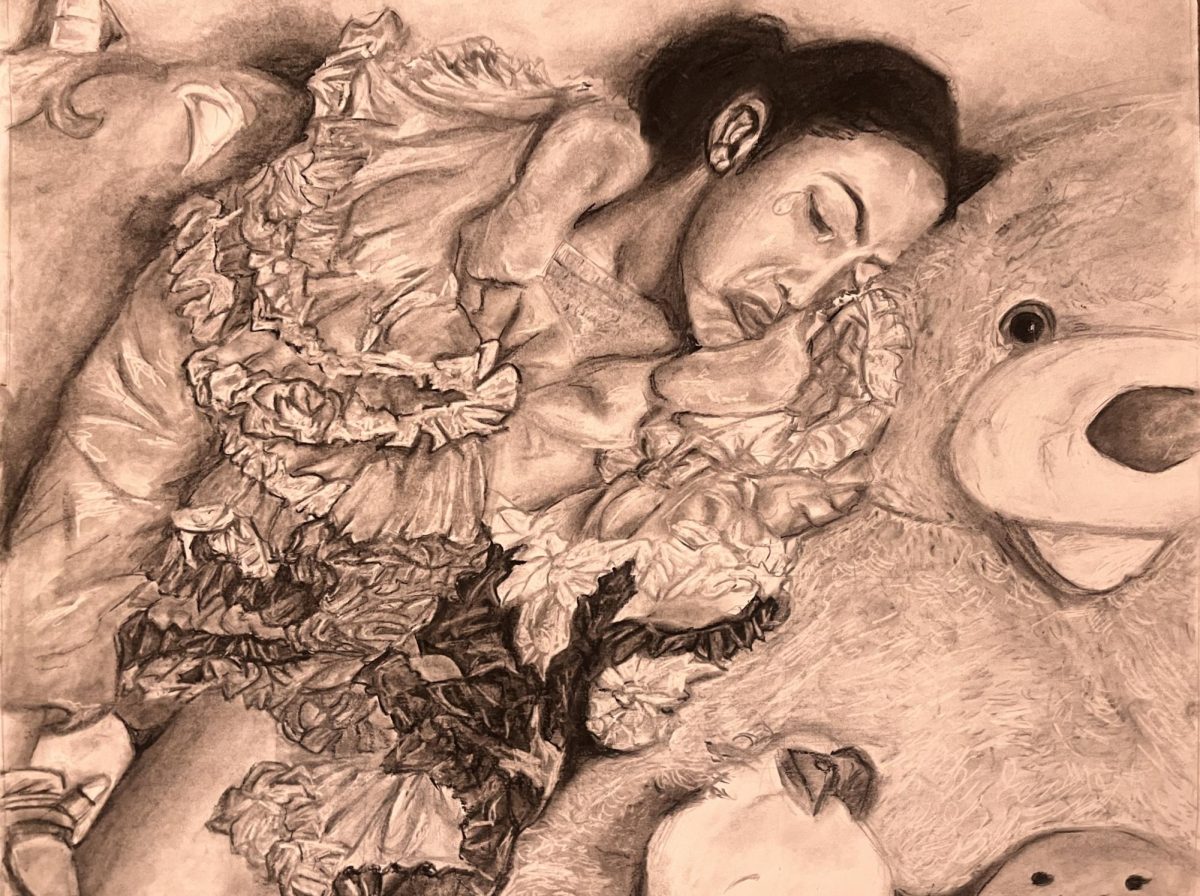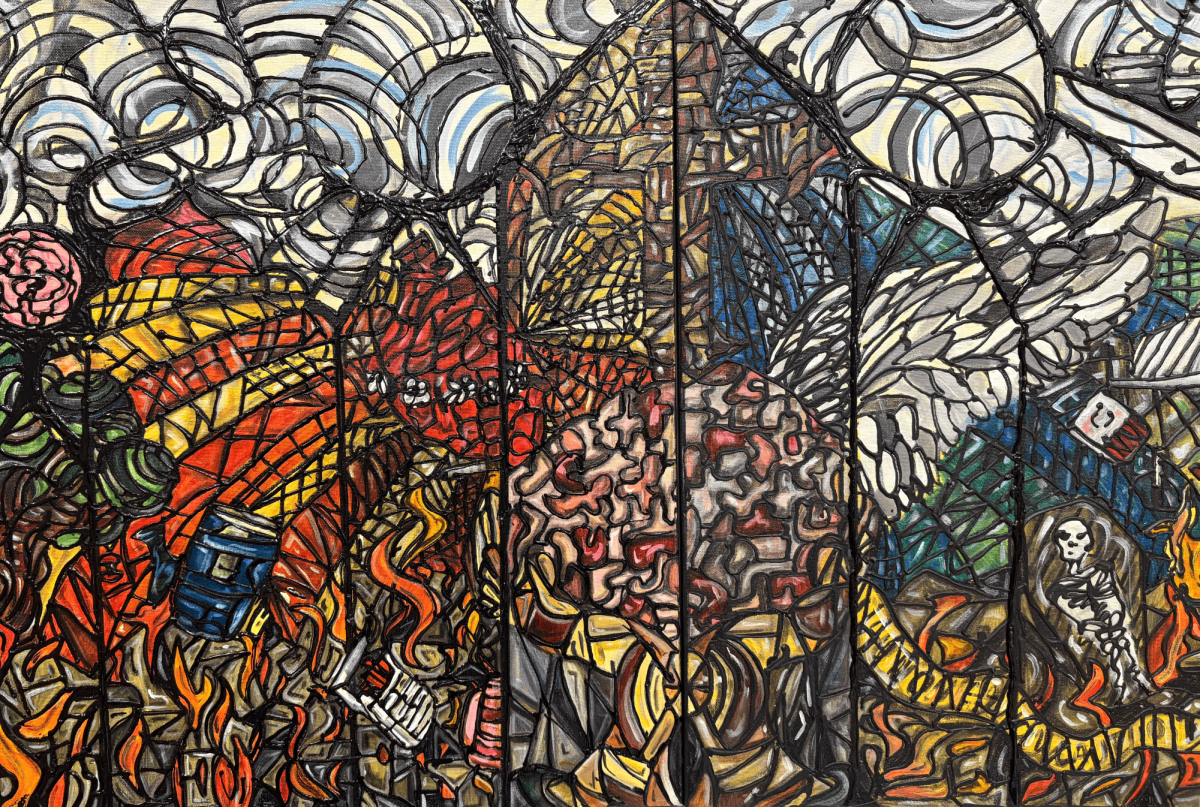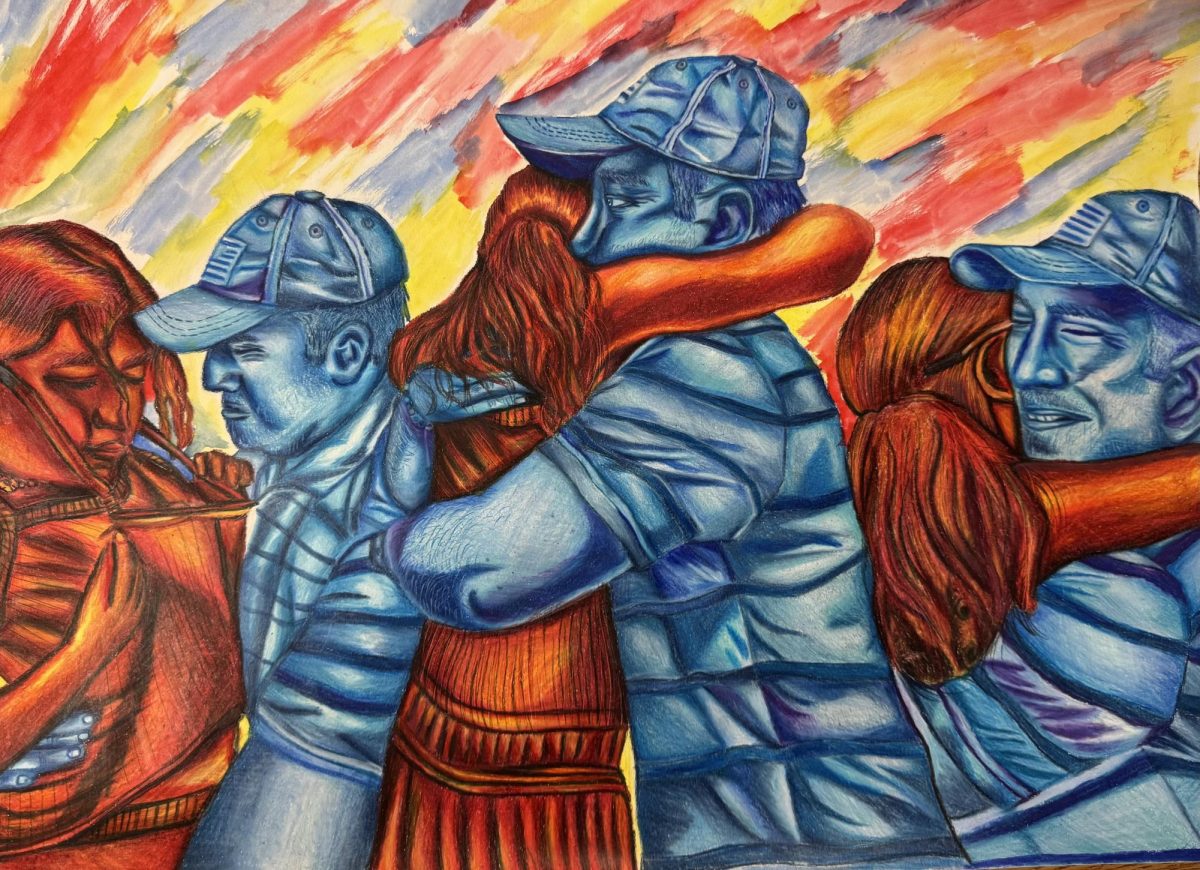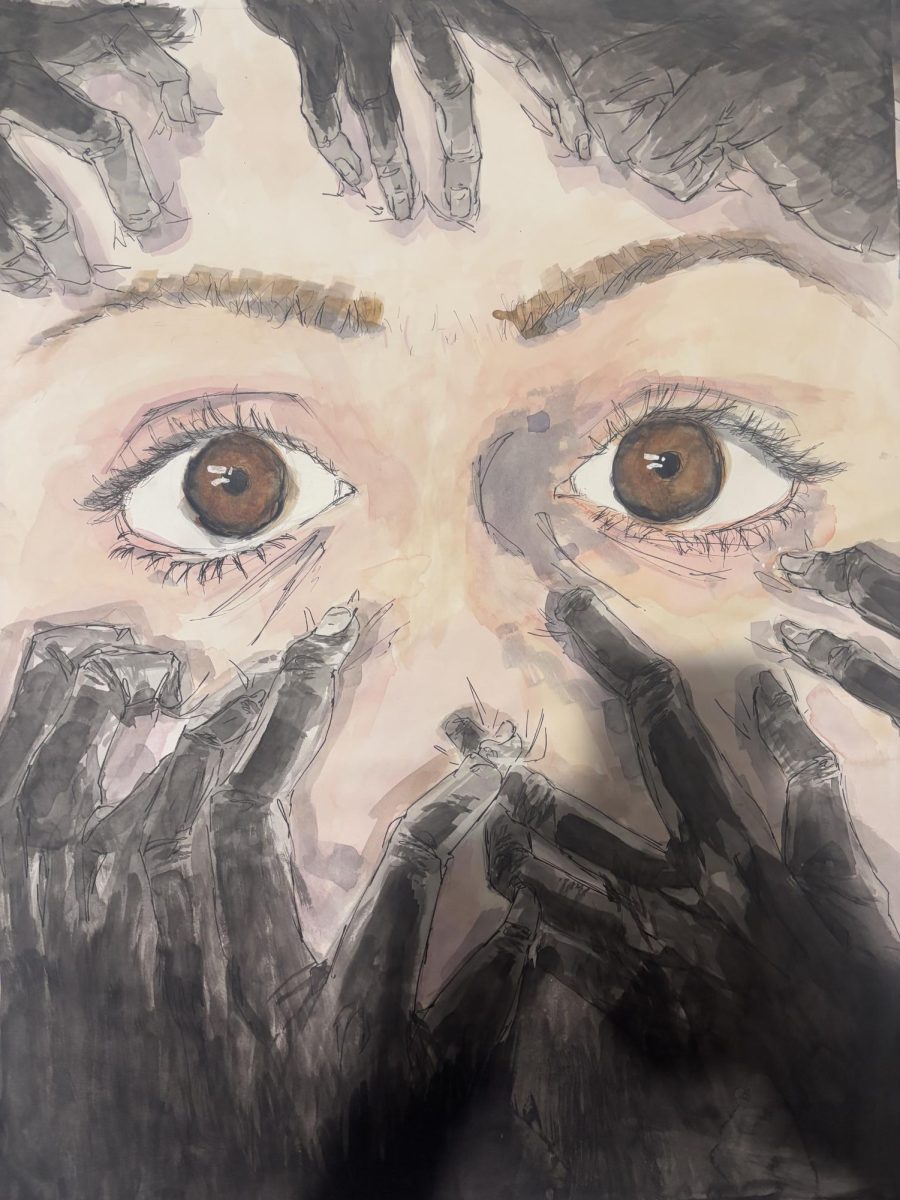Jordan Rangel, “Return Back”
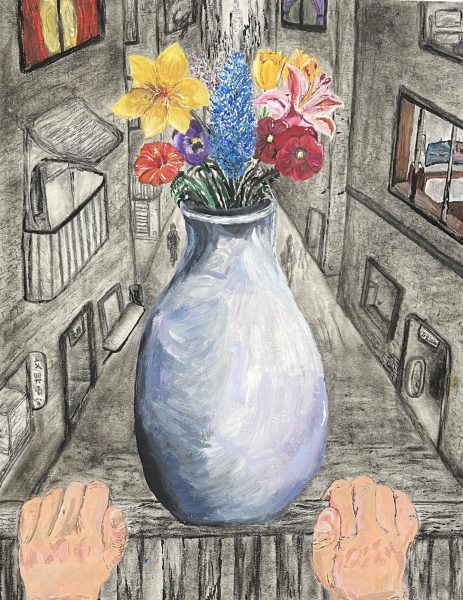
There is something about a plane ride that never fails to pull at those cobwebs in the deep closets of my recollection. The droning noise and heights I will never feel against my bare skin, but can picture in simulacrum, through the efforts of strangers I will never know or be able to name.
It reminds me, always, of my high school graduation.
What remains the most in my memory, and I admit this with some shame, was the way he first stepped onto the stage.
Like his cap and gown were so heavy that his body had gone limp, and the great impatient ghost that haunts every high school graduation was all that remained to steer his body up those creaky stairs.
He addressed the podium and adjusted the mic with loose, slipping fingers. Everything was as habitual and perfunctory as the breaths he took before he spoke. It was as if he’d practiced it a thousand times in front of the mirror. Maybe a thousand more, in a dream.
I can honestly say I couldn’t recall having ever seen him before in my life. I suppose there is no better first impression from one high schooler to another than to learn the other is your valedictorian.
I remember his very first words. Spoken gently into the mic.
“You have forgotten me.”
He cast a glance across the crowd. His eyes seemed in one moment to be dull and glazed-over, beady and black. In the next, empty sockets.
“None of you even know my name.”
This struck me, intuitively, as impossible. If nothing else, some administrator should’ve introduced him as he stepped up. Yet as I raked through the short moments between the last droning speech and the beginning of his, I could not remember a single thing.
I felt, with a stubborn sort of contrarianism, that someone must. That he was wrong. Surely, he was wrong.
“You have all, each and every one of you, begun to clean out the little spaces in your mind you used to visit every day.”
I remember him sounding musing. Like remarking on a discovery—seeming, in some ways, an invitation to share in some simple understanding.
Sometimes I wonder if it were instead accusatory. Sometimes, I even think to picture it that way. To imagine his face contorted in sublime rage, hissing his syllables through ground down teeth. I can never manage it for long. There is a part of me that can never truly believe in his vitriol. But, it could very well be the part of me that does not want to be accused.
I think of his face as kindly. His voice, soft. Truthfully, I know I do not really remember either.
“Soon,” He continued, “You will begin to place in boxes the faces and voices of those you might’ve considered close, if not closer, than family. Thicker than water, thicker than blood. You will find that they are not thicker than packing tape.”
I decided then I hated him. In the simple ways you can hate a stranger: those minor evils they inflict on your person, unjustifiable only because there is no one to justify them. It is an interesting feeling to comb through, in recollection. I remember my righteous indignation, shooting glances between bodies and through alternating chairs to make eye contact with my friends, sharing with them mirrored looks of incredulity.
He said, “You will forget them, eventually,”
And indeed, I had. I remember some names. Sharing a science class with one, who used to always copy my work. Another who would touch my hair without asking, though I was endeared by it at the time. They are strangers now, remembered only by their minor evils.
It is funny to think of how incensed I’d become, then. I imagined the disparaging conversations I would share with my friends once we’d been relinquished. I shuffled in my seat, suddenly intent on physically demonstrating my impatience and my confusion.
Even then I must’ve been eager to be assured of my misunderstanding, because I froze immediately when he began to speak again.
“I do not mean to belittle you. It is a beautiful thing, to have spent these best years collecting artifacts to be swaddled in bubble wrap and stored away in the attics and cupboards of your heart. It is remarkable that even in forgetting, you have been changed; marked irreversibly by the love of others.”
I cannot remember what I thought, though I suspect I thought nothing at all.
“I admire you. You have, all of you, become more than I have.”
He paused overly long, and flipped a page. I remember being dragged back down to earth by the sound. Reminded, inexplicably, that he was no spirit haunting this auditorium, but a boy, reading a speech. Who, at some point, had typed it all out.
“You see,” He said, “for the simple trade of artifact, of voices and faces and the marks that our love leaves on one another, I have the honor of standing on this stage.”
A droning noise grew louder in my ears as I began desperately trying to make out his expression. To decipher his features and recall whether I had ever glanced at him in a hallway or seen him in the corner of a classroom.
I was at ends trying to unravel for myself whatever profundity he’d discovered in having never been known at all, yet still seeking fruitlessly to assure myself he’d found no string in the first place. Surely, I recognized him. Surely, someone did. Surely, he was wrong.
I regret it now. Because I have had my entire life to consider this profundity, and I must spend it having never known what he said while I was not listening.
Sometimes I guess at what he must’ve said. I wonder if it was something uniquely unforgettable. Some keystone of his existence, delivered in the span of seconds.
Such are the fictions I tell myself. The truth is, it could have been anything. I did not remember anything to forget.
I was recalled by the heave of a breath. I hear it in my memory as a sigh, like he knew I did not hear him.
“I apologize, to have to do this all here. To impose myself on these singular moments, to try and enact my own change on these great overturnings between now and the rest of your lives. I am sorry.”
He flipped another page. It smacked with finality.
“I say, you have forgotten me, and I mean it as an earnest wish. That you will remember this, if not my name, my face, or my voice. That it will be something, eventually, worth forgetting. That it will earn me a place in the attics and cupboards of your heart, no matter how strange or mocking a place it may be. Double box it, if you must. Just, please, leave some room.”
And it was quiet, but for the heaving breaths the mic could sometimes catch.
“Thank you.” He set down the mic with a ring of feedback, shaking hands and shaking legs as he stepped away from the podium.
He left the stage, trembling but firm-footed, his cap and gown weightless on his shoulders and billowing across the stage behind him as he left.
I imagine, sometimes, that the room was utterly silent. Struck dumb, speechless and soundless in the aftermath.
People clapped. Confused and not all too enthusiastically, but they did. Soon, I joined them. Maybe it was more for ourselves, for surviving the ordeal. Maybe it was for all that we were leaving behind. Maybe it was for nothing at all.
Someway, somehow we were all a room of clapping graduates, cheering listlessly for our nameless valedictorian.
Maybe it is something human, to cheer for things that we do not have names for. To clap for the heights we will never reach on our own, to celebrate every loss it took to get there. Every absence and forgotten name tucked in the recesses of our collective histories.
I clap each time the plane lands, perhaps obtusely and without understanding, but admiring nonetheless.
I imagine him, that nameless boy, as each and every pilot.
